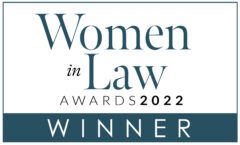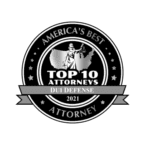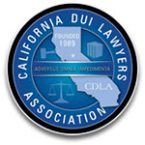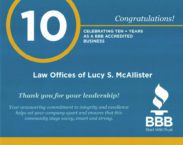If your License has been revoked, you may still have an opportunity to reapply or submit a “Petition for Reinstatement” after a period of time or years has elapsed. Typically, license reinstatement is usually conditioned on proving good conduct by a licensee during a specific probationary period of time and engaging in appropriate “rehabilitation”, defined by licensing agency and/or board policy and regulations.
If you are denied reinstatement you can typically again request a hearing before an administrative law judge to prove your good character. Unlike the case with a disciplinary proceeding by a licensing board however (where the licensing board or agency has the burden of proof), in reinstatement hearings the licensee has the burden of proof.
This is where an experienced licensing attorney can make the difference between you ending up with a valid professional license to practice your profession or you being out of thousands of dollars in professional training and no chance of leveraging this investment.
There are four important legal considerations when seeking to reinstate a license: eligibility, required timeframes, case complexity due to your board’s reinstatement process and legal conditions associated with your specific case.
Eligibility to have your license reinstatement requires that a licensee not be on probation or parole and that the required amount of time has passed since the application was denied by the licensing authority. Some Boards, such as the Medical Board of California, also require that the petitioner obtain sworn statements supporting their petition from two licensed colleagues.
Licensing boards also vary in the complexity of the reinstatement process and the amount of time this requires. The Board of Registered Nursing, for example, will allow a petitioner to appear in front of the Board in just a matter of months while other Boards, such as the Medical Board of California, delegate these cases to the Office of Administrative Hearings (OAH) in a process that can easily take from 12 to 18 months. Other boards require investigations as part of the processing and consideration of reinstatement petitions further extending the process, costs and timeframes for licensees.
The most important legal consideration, however, is the legal prognosis for a winning petition of reinstatement. This is based on being able to present compelling factual evidence that adequate rehabilitation has occurred (both in terms of improvements in personal lifestyle and behaviors), the passage of a sufficient amount of time without further incident, evidence of appropriate levels of professional expertise and the licensee’s overall outlook and attitude.
Retaining the advice of an experienced California licensing lawyer is critical for a successful petition for reinstatement. A seasoned California license lawyer has the objectivity and experience to determine what evidence will be crucial to get a license reissued and how to create the most compelling case given a licensee’s history with the licensing board. The message of the petition must be carefully written to highlight the petitioner’s positive progress in addressing issues during the rehabilitation period and assure the board that the licensee will neither harm the public nor end up back in the license discipline system.
The Law Offices of Lucy S. McAllister are knowledgeable about submitting successful petitions for reinstatement. If you have a California license that has been disciplined, or had a license that was revoked or suspended, we will work to seek reinstatement of your license, and/or to modify the discipline that was previously rendered by your licensing authority.
Contact us today for a consultation about your specific case for license reinstatement.











